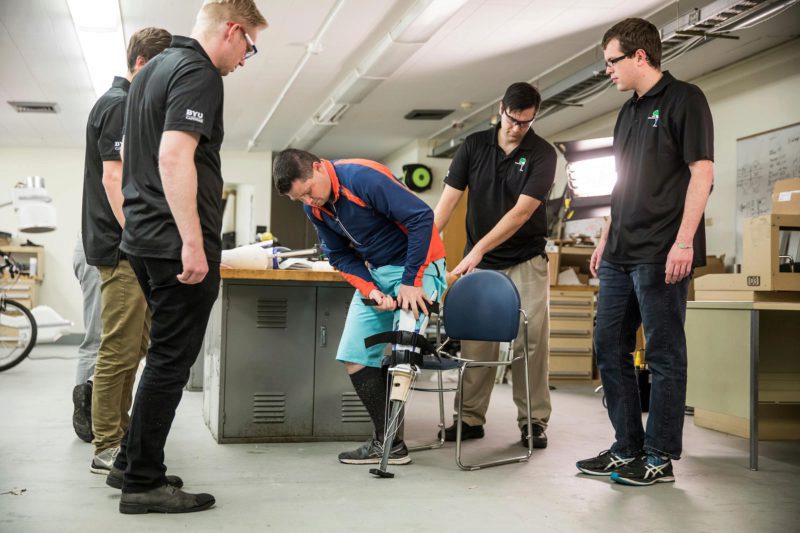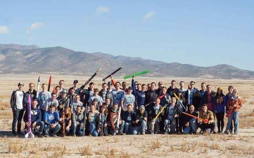Bringing Wholeness to Victims of Civil War
Sierra Leone’s civil war left behind more than 27,000 amputees. Recent BYU students created an adjustable and affordable prosthetic socket for the veterans.
April 2017

During Sierra Leone’s bloody civil war from 1991 to 2002, rebels in the African country cut off the hands, arms and legs of more than 27,000 people. Their horrific attacks spread terror and left their victims permanently disabled.
Now, 15 years later, Sierra Leone is no longer in a time of war, but most of the amputees who survived struggle to complete daily tasks and provide for their families. Unlike medical amputations executed at strategic locations, the rebels’ crude methods left limbs that make fitting prosthetics extremely difficult.
These men and women have had precious few resources – until now.
BYU engineering students have teamed with the nonprofit Engage Now Africa (ENA) to create a socket for above-knee amputees that fits neatly into prosthetics made available by the International Red Cross.
“In addition to the difficulty of being an amputee, the poverty in Sierra Leone limits their ability to purchase adequate sockets,” said student Zac Lichtenberg. “What we’ve created will open the door to easier manufacturing with affordable materials.”
(Read more at BYU News)

Sierra Leone’s civil war left behind more than 27,000 amputees. Recent BYU students created an adjustable and affordable prosthetic socket for the veterans.

When this building is complete, we believe it will positively benefit students, faculty, and ultimately the world,” said President Worthen. “Thanks to you and other generous alumni and friends, we’re now in a position to move forward."

Patrick Walton also wanted to explore space. Along with starting the BYU Rocketry Club, he took a special projects class from David Long, who helped him write a proposal for NASA that was accepted.